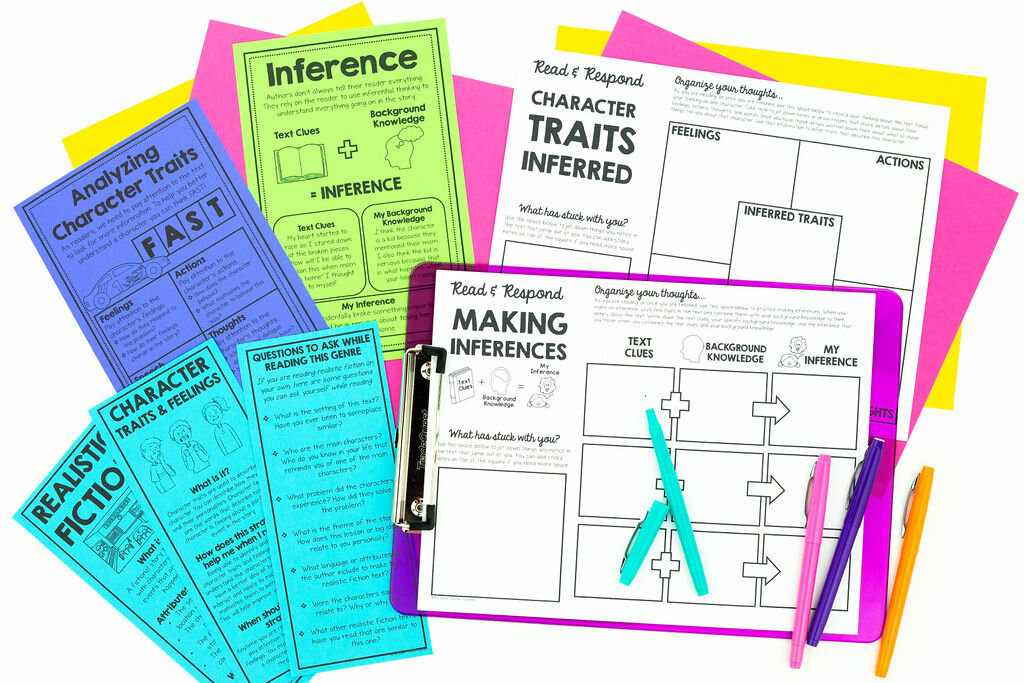
Out of all of the reading skills you teach your students during the school year, making inferences is one of the most difficult! This is because you are teaching students to identify something they can’t explicitly find in this text. It requires some critical thinking skills. It also requires the ability to ‘read between the lines’, which is tough to define. If inferencing has given some students in your classroom trouble, the tips below will help your class soar to mastery!
When you are making inferences, you are using your schema (background knowledge), and clues from the text to understand something that the author did not explicitly say.
An example might be that a character is really looking forward to a certain event happening in a book. When the character learns that the event is cancelled, the author describes the character looking at his shoes, with his shoulders slumped over. The author did not have to say that the character was disappointed. Instead, the author showed the reader that the character was disappointed, and it is the reader’s job to use these clues to make that inference!
Unlike so many skills we teach in reading, inferencing does not merely involve citing text evidence. Instead, inferencing takes text evidence one step further by finding clues in the text, and pairing them with your own life experiences to draw conclusions about what the author is trying to say. This requires quite a bit of critical thinking!
When we push our students to think more deeply about the text, and to make some text-to-self connections, it deepens their comprehension of the text. As teachers, our goal for each of our students is to help them grow as much as possible, and to prepare them for the more complex texts that they will encounter in the next grade level. Inferencing pushes students to think more critically about texts, in turn helping them grow!

I like to begin a new unit on making inferences with a read aloud that perfectly illustrates that skill. Five of my favorites are: